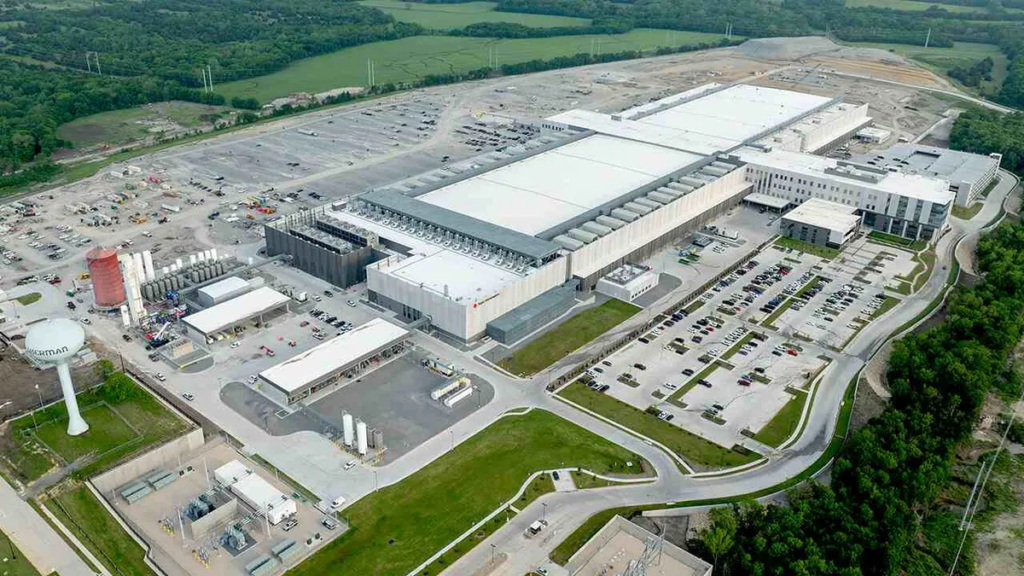Texas Instruments (TI), a leading semiconductor manufacturer, has made a game-changing announcement. The company plans to invest $60 billion to build seven new semiconductor fabrication plants, commonly called fabs, across Texas and Utah. This significant investment is expected to generate approximately 60,000 jobs, bolstering the U.S. chip manufacturing industry and strengthening the national supply chain.
This move comes amid growing global demand for semiconductors and U.S. efforts to bring more chip production back to domestic soil. Texas Instruments’ investment will not only expand its own production capacity but also contribute to American technological independence.
Massive Job Creation: 60,000 Opportunities Across States
The creation of an estimated 60,000 jobs is a major component of TI’s expansion plan. This figure includes both direct employment at fabrication sites and indirect jobs created across supply chains, construction, and support services.

According to Texas Instruments’ newsroom, the jobs will range from engineering and tech roles to operations, logistics, and administrative positions. Texas and Utah communities can expect long-term economic growth from this investment.
Where the Fabs Are Going: Locations in Texas and Utah
Texas Instruments will establish four fabs in Texas and three in Utah. The exact locations include:
- Sherman, Texas: TI will expand its existing site with multiple advanced 300mm wafer fabs
- Richardson, Texas: TI will enhance production capacity with upgraded facilities
- Lehi, Utah: The site will be developed further following the acquisition of Micron Technology’s Utah fab in 2021
The new fabs will use 300mm wafer technology, which offers better efficiency and lower production costs compared to smaller wafer sizes.
Strengthening the Domestic Semiconductor Supply Chain
The COVID-19 pandemic revealed serious gaps in the global semiconductor supply chain. Car makers, electronics companies, and tech giants all faced massive chip shortages, slowing production across industries. By building these new fabs, TI aims to ensure more chip manufacturing takes place in the U.S., reducing dependency on overseas suppliers.
The U.S. government is also supporting chip manufacturing through initiatives like the CHIPS and Science Act, which provides financial incentives to companies investing in domestic production. TI’s $60 billion investment aligns with these goals, positioning the U.S. as a global semiconductor powerhouse.
Advanced Technology and Long-Term Goals
Texas Instruments has stated that these fabs are built for the long term. Each facility will support advanced analog and embedded processing chips, crucial components in everything from medical devices and cars to smartphones and factory automation.
Rich Templeton, Executive Chairman of TI, shared that the investment is not just for the next five years but for the next several decades. The company’s strategy focuses on long-term manufacturing capability, reliable supply, and cost efficiency.
These fabs are designed with scalability in mind, meaning that TI can expand production capacity further as demand increases in the future.
Environmental Commitment and Sustainable Manufacturing
TI has committed to building these fabs with sustainability at the forefront. The new facilities will include energy-efficient designs, water recycling systems, and plans to meet high environmental standards.

According to TI’s Environmental Strategy, the company aims to reduce greenhouse gas emissions, improve water efficiency, and manage waste responsibly across all manufacturing sites. This investment also demonstrates that large-scale semiconductor production can align with global sustainability goals.
Economic Impact on Local Communities
Communities in Texas and Utah are preparing for economic transformation. Local officials expect boosts in infrastructure, housing, and educational programs related to high-tech job training.
Educational institutions are also expected to collaborate with TI to build a pipeline of skilled workers. These partnerships will include internships, technical programs, and scholarships, helping residents prepare for and succeed in the upcoming job opportunities.
Industry Reactions and Market Outlook
Industry analysts and stakeholders have responded positively to the announcement. The investment is seen as a sign of confidence in the future of U.S. chip manufacturing.
“TI’s $60 billion investment marks one of the largest commitments by a semiconductor company on U.S. soil,” said a spokesperson from the Semiconductor Industry Association. “It sets a benchmark for what national leadership in semiconductor innovation looks like.”
TI’s move may also influence other chipmakers to follow suit, increasing domestic competition and innovation.
Conclusion: A Bold Step Forward for American Tech
Texas Instruments’ $60 billion chip investment is a powerful step in reestablishing the U.S. as a global semiconductor leader. With seven new fabs, 60,000 jobs, and a focus on sustainability, this project promises widespread impact—from local communities to the global technology market.
As the world becomes increasingly digital, investments like these ensure that the foundational components of modern devices—the semiconductor chips—are made closer to home, reliably, and at scale.
Also Read – Ride Winter’s White Carpet: Fat-Biking in Park City, Utah






